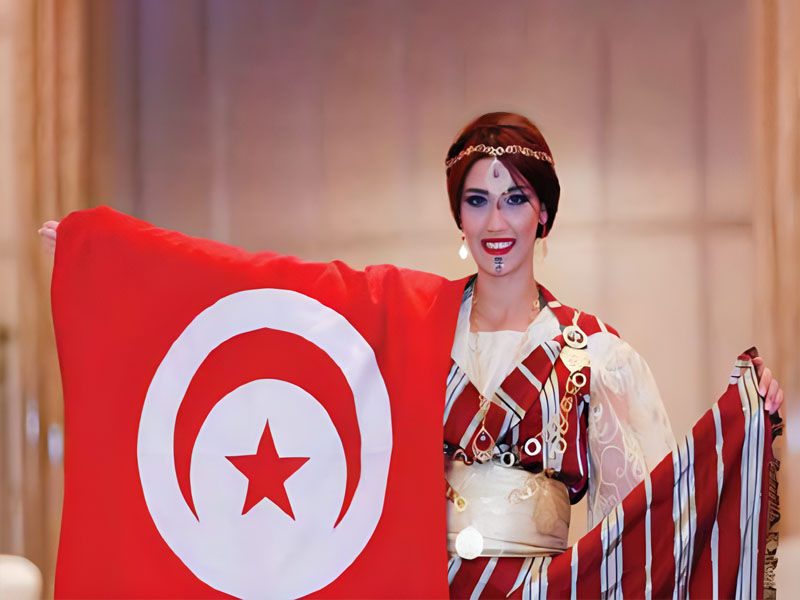Woman and her portrayal in folk proverbs in Tunisia: An anthropological reading
Issue 42

By Hasan bin Sulayman, writer, Tunisia
This article attempts to study the presence of the Tunisian woman and the way she is portrayed in folk proverbs created by different social classes and groups. The researcher based his study on a reference of over 250 examples collected from various groups and produced in different time periods and in both urban and rural locations.
The author defines the proverb as a linguistic-cultural production and the result of patterns of collective behaviour. He also describes its meanings and implications, especially those directly related to the study. After discussing the functions of the proverb, especially its educational function when the proverb attempts to correct individuals by criticising bad behaviour and identifying shortcomings, he concludes that proverbs about women sometimes use sarcasm, rhetoric and metaphor to achieve their ends.
After methodically reviewing the corpus of Tunisian proverbs, we realised that the alphabetical order used did not suit the purpose of this study or help the researcher reach his objective. We rearranged the proverbs related to women on the basis of context, an important concept in modern linguistics that takes into account the speaker’s condition and his psychological and expressive needs for communication. It was necessary for the researcher to consider the proverbs’ implications. From the corpus of proverbs about women, we identified two contexts: ethical and social. In the social context, the proverbs apply to women at different stages of their lives (as a girl, a wife, and a mother).
We found contradictions among the proverbs that describe women as daughters. At times, we found an explicit instruction to educate women, but we also found many proverbs that warn people not to educate their daughters. The proverbs are a reflection of the reformist ideas that have tried to persuade the Arab elite to educate women (Taher Haddad, Qasim Amin). When we look at the woman as a wife, we find a type of marriage called ‘Arab marriage’ that is brought to our attention because it violates the universal rules of marriage that Claude-Levi Strauss mentioned in the Anthropologie Structurale. In this context, we have highlighted the role that women play in traditional societies. Women in these societies preserve the family legacy (especially land) by marrying within the clan or tribe in what is known as a ‘mariage endogamique’.
We looked at the woman as mother in three situations: her role in the life of the individual, her role in educating him, and the sense of loss after her death. It is possible that the greatest respect a woman enjoys is the respect that society gives her after her death! Her death represents the loss of the individual and the disappearance of the group’s values.
In the ethical context, we identified two sub-categories: women's moral defects and powerless women. The folk proverbs that reflect women's moral defects reveal a tension between two perspectives: the individual's perspective and her suppressed dreams, longing for liberation from the constraints of traditions and customs; and the group’s perspective that perpetuates the idea that women are inferior and incapable.
The perception that women are unable or unwilling to play the role assigned to them by society reflects an important social and cultural indicator that implies that it is the woman’s cultural response to a patriarchal society.







































































